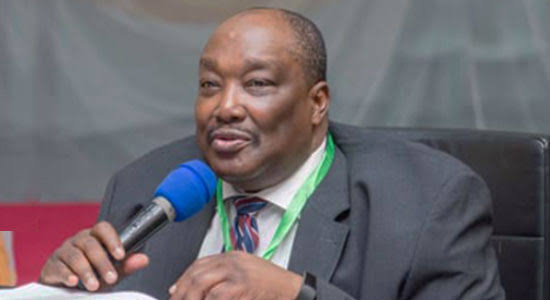News Investigators/ A Senior Advocate of Nigeria (SAN) JB Daudu has called on the National Assembly (NASS) to replicate the proposed constitution review seeking to curtail the state Chief Judges’ power abuse to the Assembly leadership.
Mr Daudu made the call in an interview with the News Agency of Nigeria (NAN) on Thursday in Abuja.
NAN reports that the proposed constitutional review, aims to curb potential abuses of power by state Chief Judges by transferring some of their authority to the state House of Assembly leadership.
The proposal before the NASS is seeking to introduce checks on the powers of state Chief Judges by strengthening the roles of judicial councils and peer review mechanisms.
The proponents of the proposals seek to achieve this by promoting decentralized administrative structures within the state judiciary to reduce arbitrariness and concentrate decision-making authority within appropriate panels.
They also made proposals to reduce over-concentration of powers in the office of the State Chief Judge, ensuring collective decision-making within the judiciary.
“These proposals are also insipid and an attempt to create issues where there are none. Every organisation is held accountable by, and through, the leader of the organisation’’.
The learned silk noted that the office of the Chief Judge of the state is not the target.
He added the main targets are offices of the president of the Court of Appeal and that of the Chief Justice of Nigeria, and by extension, the entire judiciary.
“Indeed, it strikes at the twin principles of the independence of the judiciary and the separation of powers. What is good for the goose is good for the gander.
“Let the proponents of this amendment also promote an amendment to the powers of the Senate President and the Speaker of the House of Representatives.
“The amendment would stripe the above mentioned officers of their arbitrariness and over-concentration of powers.
“The work of the National Assembly hitherto directed by the Senate President and Speaker should be executed by or through Panels.
“Whatever is not broken should not be fixed. The proposal should be discountenanced,’’ he warned.
He said it is also being prosed that the provisions in relation to the Federal High Court in the constitution be amended to empower the court.
This, according to him is simply to clothe it with exclusive jurisdiction over violations of the Electoral Act and electoral offences.
The proposed amendment they claimed is to ensure that politically flavoured cases are handled by a competent and impartial forum.
“Again, the politicians are not being serious with the basic problems of the country, which are rooted in all the crimes and shenanigans perpetrated by office-seeking politicians in the electioneering process.
“ The answer to this conundrum has been provided since 2008 by the report of the late Jurist Justice M. L Uwais, former Chief Justice of Nigeria and his committee in what is known as the ‘Uwais Report’.
“Those who are benefitting from electoral crimes will never implement the Uwais Report.
Rather they will continue to make absurd and indeed half-baked suggestions to obfuscate the real issues, thereby manipulating the system and coasting home to illicit victory at each election cycle.
“They should simply legislate the Uwais Report into various Acts of the National Assembly and stop deluding Nigerians as to their good intentions,’’ he advised.
He also gave some advice on the proposed increase in the appointees to the membership of the Code of Conduct Tribunal (CCT) from three to seven to reflect regional diversity and strengthen impartiality.
“This is not sufficient in the circumstances of Nigeria, it is a mere tokenism.
“At the heart of our national problem is the attitudinal disposition of public officers and political appointees to matters of their code of conduct, ethics and anti-corruption values.
“Everybody just pays lip service to this veritable check and potential block to the activities of corrupt officials.
“The reluctance, and at times outright refusal by public officials to publicly declare and submit their Asset Declaration Forms and other documents is responsible for the high level of corruption in the public service’’.
He stressed that any meaningful proposal for constitution amendment in this direction must be such as established in each of the 36 States and the Federal Capital Territory.
“That is a code of conduct tribunal to facilitate the enforcement of the code of conduct provisions in the constitution and our extant laws.
“That is why the proposals usually submitted by public officers and political office holders are such that render the system weak and ineffective, thereby, slowing the entire process to become business as usual”.
NAN


